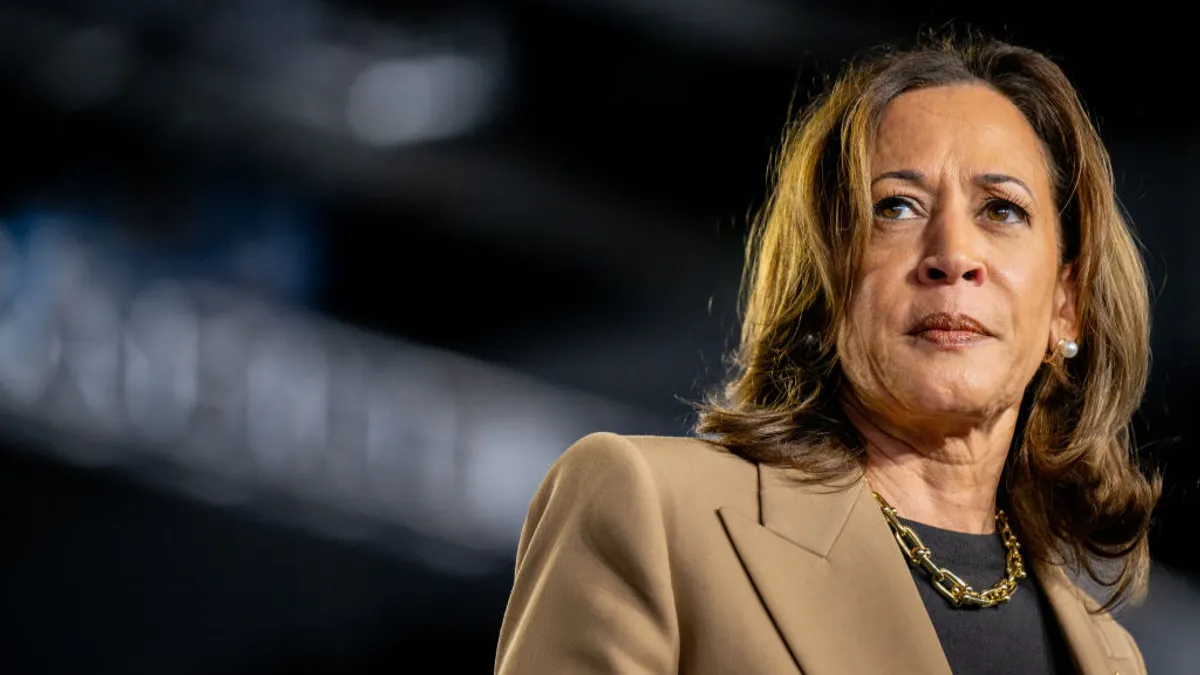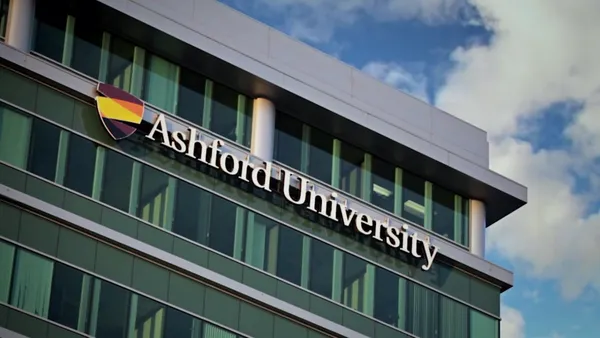Dream Center Education Holdings (DCEH) went into receivership last week, shortly after making a deal to transfer control of most of the remaining campuses in the Art Institutes chain.
The campuses now under receivership, which weren't part of the transfer deal, could be sold or close, said DCEH attorney Robert Glickman, adding, "In a perfect world, you would want a sale to occur and the university to continue."
A company that generates leads on prospective students had moved in court to put DCEH, which owed the firm more than $250,000, under a receiver to protect the nonprofit's assets, including its remaining campus operations. DCEH agreed in court papers with the necessity of receivership, acknowledging its dire financial position and the need to ensure its remaining schools can continue functioning.
On Friday, a federal court in Ohio approved the proposed receiver, Mark Dottore, a Cleveland-based consultant who had already been working with DCEH.
Under the receiver's control are the Art Institutes of Las Vegas, Pittsburgh and Seattle, as well as DCEH's Argosy University and several Art Institutes slated for closure that are teaching out students. Excluded are all but two of DCEH's South University campuses and eight Art Institutes that were part of the recent transfer of control to a separate nonprofit, Education Principle Foundation (EPF).
A $64 million shortfall
In court documents DCEH — part of a faith-based nonprofit that bought the Art Institutes from the for-profit Education Management Corp. (EDMC) a little more than a year ago shortly before EDMC filed for bankruptcy — outlined in detail just how much trouble it was in financially.
As of late December, DCEH and its subsidiaries owed trade creditors $41 million and were obligated to pay nearly $11 million in rent across 69 properties, DCEH Chairman Randall Barton said in court papers. Also by that time, DCEH universities faced nine evictions, received 15 default notices from landlords and owed $46 million on a loan going back to the purchase of EDMC's college assets, including the Art Institutes, Argosy University and South University.
With creditor actions mounting, Barton invoked the risk of "cascading shutdowns" that could trigger loss of accreditation and access to Title IV funding.
According to Barton, the troubles began shortly after DCEH took over the colleges it bought from EDMC. Within two months, the organization discovered that "actual revenues" fell short of EDMC's projections prior to the acquisition, he explained in court filings. He put the colleges' revenue shortfalls in the context of broader declines in student enrollment and tuition revenue at career education schools.
By the spring, DCEH was looking at a $38 million operating loss for the year, compared to the $30 million surplus "represented by EDMC" prior to the acquisition, Barton said. Even worse were DCEH's projected operating losses for 2019 ($64 million) and 2020 ($69 million).
The organization hit other obstacles during the year, though they weren't detailed in Barton's account. Four Art Institutes temporarily lost their accreditation while accreditors reviewed the ownership change. DCEH was required to notify students but, according to allegations in a class-action lawsuit filed in Illinois, instead misled them into believing the schools were still accredited.
Salvaging campuses
Facing an "enormous problem," DCEH's board and management, along with advisors and consultants, identified for closure more than 30 campuses that accounted for the operating losses, Barton said.
Looking to refocus on a smaller footprint and cost structure, DCEH started talking with Studio Enterprise Manager, an affiliate of Colbeck Capital, to provide technology, management and support services like enrollment, marketing, and career and student services. Other media outlets have connected the firm to Studio Enterprise, and educational services company focused on creative fields.
Days after entering agreements with Studio in December, the Education Department determined that the organization's remaining viable campuses — a number that was cut from 12 to nine — would be transferred to a separate nonprofit (EPF), Barton said. The Ed Department had worked with both DCEH and its secured lenders and made the decision based on DCEH's financial condition.
Reports have since identified the leadership of EPF, which changed its name from the Colbeck Foundation on Dec. 31, as top executives at Colbeck Capital, which according to the Republic Report has been a key investor in Studio.
Receivership is meant to protect DCEH's remaining assets, including from creditor claims, likely so they can either be sold off or shut down in a way that is both orderly and protects students. DCEH indicated in court papers that it was in talks with a potential buyer of its Argosy University assets, naming the possible suitor as Eastern Gateway Community College, a public college in Ohio that is considering using Argosy's facilities to retrain workers laid off by a General Motors plant in the state. No prospective buyers were listed for DCEH's remaining Art Institutes or other assets.
As for the Art Institutes under receivership, DCEH so far has said little to staff and students about their fates. On Friday, upon entering receivership, Barton told staff the day marked "a major milestone in the significant work to provide education that is relevant, accessible, purposeful, and affordable," according to an email obtained by Education Dive.
Barton also said receivership would give the organization "the opportunity to work with new financial partners who will be assisting with restructuring the vast amount of debt and overhead we inherited" from EDMC. But he provided no additional details on what form the restructuring could take or what it meant for the schools that went into receivership rather than were transferred to EPF.
One of the schools in receivership, the Art Institute of Seattle, is barred by state regulators from enrolling new students after it canceled and then failed to post a new surety bond, a financial instrument meant to protect student tuition in the case of campus closures and other events.
Staff and faculty at multiple Art Institute locations have told Education Dive they know of staff layoffs in support roles at their campus.
This article has been updated with new information about the relationship between Colbeck Capital Management and Education Principle Foundation and of possible staff layoffs.
A previous version of this article misstated when Education Management Corp. filed for bankruptcy relative to its transaction with Dream Center.






















